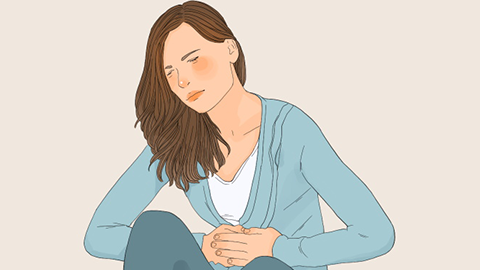How to relieve stomach pain during a woman's menstrual period?
Menstruation refers to the menstrual period, and "stomach" refers to the abdomen. Generally, abdominal pain during menstruation may be related to factors such as uterine contractions, cold exposure, increased prostaglandin secretion, pelvic inflammatory disease, and endometriosis. It is recommended to relieve the pain through dietary adjustments, timely rest, heat application, medication, or surgery. It is advised to visit a hospital to determine the cause and follow medical instructions for treatment. The analysis is as follows:

1. Uterine Contractions: During the menstrual period, the uterus contracts to help shed the endometrial tissue. This normal physiological response can sometimes cause pain. It is a normal phenomenon; dietary adjustments are recommended, avoiding cold or spicy foods, and drinking warm beverages such as brown sugar water and ginger tea.
2. Cold Exposure: During menstruation, the body may be relatively weak, and cold exposure may stimulate the gastrointestinal tract, leading to abdominal pain. Applying heat can help relieve the pain, as it promotes blood circulation and alleviates discomfort.
3. Increased Prostaglandin Secretion: During menstruation, women's bodies secrete increased amounts of prostaglandins, which may cause excessive uterine contractions, resulting in abdominal pain. If the pain is severe, pain-relief medications such as ibuprofen sustained-release capsules, acetaminophen tablets, or compound aspirin tablets may be taken under a doctor's guidance.
4. Pelvic Inflammatory Disease: Pelvic inflammatory disease refers to inflammation of organs within the pelvic cavity. If a woman has this condition, pelvic congestion and edema may occur during menstruation, leading to abdominal pain, often accompanied by increased vaginal discharge, fever, and other symptoms. Women should take medications such as minocycline hydrochloride tablets, amoxicillin-clavulanate potassium tablets, or ofloxacin capsules as advised by a doctor to aid recovery.
5. Endometriosis: Endometrial cells grow in areas outside the uterine cavity, such as the ovaries or pelvic cavity. These displaced endometrial tissues also bleed during menstruation but cannot be expelled from the body like normal menstrual flow, thus causing abdominal pain. Symptoms may include infertility and menstrual irregularities. If necessary, treatment options such as laparoscopic surgery or transvaginal surgery may be considered under a doctor's recommendation.
In daily life, maintaining good living habits and dietary practices, avoiding excessive fatigue and staying up late, can help alleviate dysmenorrhea symptoms.








